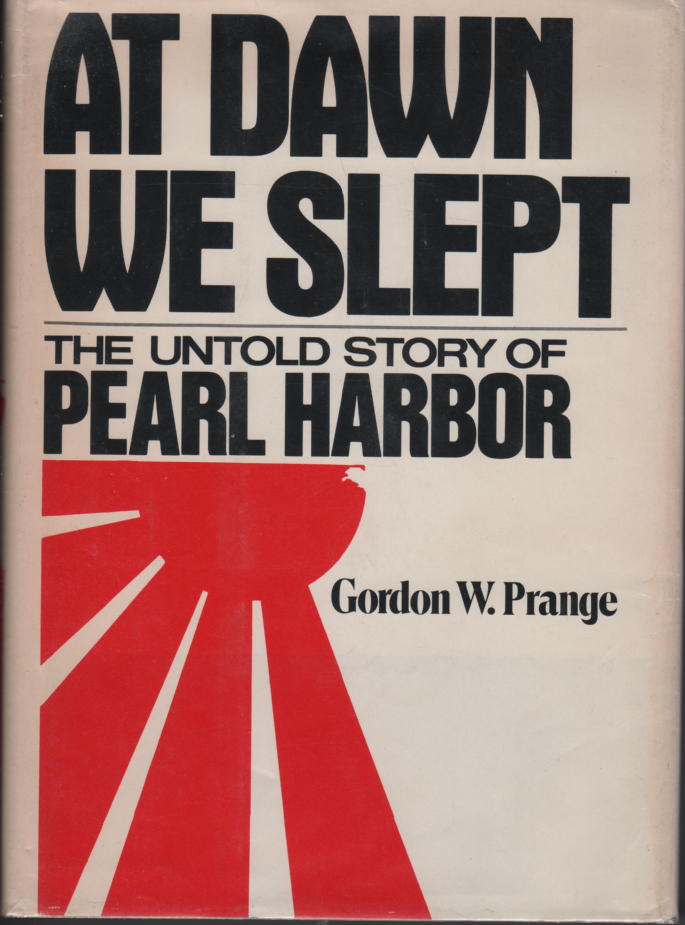At Dawn We Slept


| Author | Gordon W. Prange |
| Publisher | McGraw-Hill Book Company |
| ISBN | 0-07-050669-8 |
| Reviewed By | Guest Reviewer Andrew Nguyen |
| Review Date | 17 Jul 2009 |

Although there have been later books published about the attack on Pearl Harbor, the book "At Dawn We Slept" is one of the most important when one is studying about the Pearl Harbor attack. Written by Gordon W Prange after extensive research, including interviews with Japanese participants and looking over Japanese documents at the time, it was published by his associates after he passed away in 1980. In the introduction to the book, the author is said to have considered that more would be written inevitably about the Pearl Harbor attack and that he did not consider his own work the final word on the event.
In the form of a novel, the book kicks off with the introduction in the first chapter of the world situation in 1940, as Japan is busy expanding its colonial empire. The next chapter, not surprisingly, begins the lead up to the attack with the first introduction of the key player on the Japanese side, Admiral Irosoku Yamamoto. Next, the story pushes on and the situation seems to resemble a countdown as the plans for the Pearl Harbor attack move through the different stages while the intended victims tried to deal with the impeding world situation in both the Pacific and Atlantic Ocean.
As the actual attack is already well known, it only occupies a small part of the story. Afterwards the aftermath of the attack is highlighted on both sides, particularly in the case of the Americans as they attempted to answer how this event could have happened.
Throughout the story, the author works on refuting the arguments made by revisionists that President Roosevelt deliberately allowed the Pearl Harbor attack to happen in order to get the US into the war.
As already stated before, the events of the book plays out like a grand novel with characters on both sides leaving a deep impression on you. You feel sympathetic to all and perhaps a bit of respect (particularly on the side of the Japanese side) to many of them as their roles in history play out whether to success or misfortune.
Read more reviews about this book on Amazon.
Return to book reviews index

